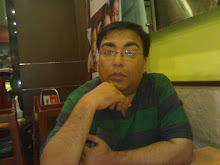 Immortality seems to be staring the human race in the face. If one was to believe the ‘futurist’ (never knew what this meant till recently) Mr. Ray Kurzweil, mankind will find a permanent solution to the scourge of dying and that too, not in too distant a future. Mr. Kurzweil believes that by 2029, that is in just 20 more years, man will conquer the final frontier in medicine and will be able to continue to live forever.
Immortality seems to be staring the human race in the face. If one was to believe the ‘futurist’ (never knew what this meant till recently) Mr. Ray Kurzweil, mankind will find a permanent solution to the scourge of dying and that too, not in too distant a future. Mr. Kurzweil believes that by 2029, that is in just 20 more years, man will conquer the final frontier in medicine and will be able to continue to live forever.
Ray Kurzweil has been a thinker, author and entrepreneur. He has done pioneering work in developing optical character reading technology as well as developed a text to speech synthesizer way back in the 1960’s and 1970’s. Of late he has been researching and writing on Artificial Intelligence and how life as we know it is on the verge of extinction, thanks to what Kurzweil calls ‘The Law of Accelerating Returns’. Kurzweil believes that we are on the verge of a technology explosion, which will grow human knowledge exponentially by a billion times in the next 25 years or so.
Armed with this kind of knowledge and technology, mankind will be able to reverse aging, turn the clock back permanently and maybe bring the dead back to life using their DNA. In fact Kurzweil is on record stating that one of his goals is to ‘resurrect’ (or shall we say reboot) his late father using some of his DNA. All this it seems will be made possible by rejuvenating body organs using the ‘nanobots’, very small nano sized robots , which will be able to identify and destroy disease causing micro organisms, tumour cells and aging cells, thereby curing and restoring humans to good health.
While, this may seem completely futuristic and the figment of somebody’s very fertile imagination, the truth is that many scientists today believe that the day is not very far, when nano particles will be in use in medicine, destroying tumours, opening blood vessels, rebuilding necrotic tissue and healing horrendous injuries. This leads us to the inevitable question- Is the ultimate goal of all the advances in medicine ‘immortality’ or is it to prolong and enhance the quality of life to a reasonable degree?
At a more philosophical level we must ask ourselves, whether man should even endeavour to live forever. In our quest for a longer and healthier life are we really going overboard by chasing immortality? Resurrecting the dead? Does any of this make sense? And where does God fit in this scheme of things? Are we aiming to be Him?
These are questions that need to be pondered by people with intellect much higher than mine. All that I can say that while man mulls over the possibility of attaining immortality in the next few decades, he must be very very careful. Disturbing the inherent equilibrium of the cycle of life and death is fraught with unknown risks and dangers. Playing God is very dicey (apologies to a certain Mr. Albert Einstein) and honestly life would hardly be as much fun if we knew it would never end.
Pic courtesy http://www.flickr.com/photos/duncan
 A recent cover story in Business World highlights the growing influence of Single Speciality Hospitals (SSH) in India. I read the story carefully. First and foremost, I was delighted to see a cover on healthcare in Business World. It is not often that the business of healthcare gets prominence in a widely circulated and highly respected business weekly. That, BW decided to do this story is a testimony to the growing importance of the private healthcare sector, which is something to cheer about.
A recent cover story in Business World highlights the growing influence of Single Speciality Hospitals (SSH) in India. I read the story carefully. First and foremost, I was delighted to see a cover on healthcare in Business World. It is not often that the business of healthcare gets prominence in a widely circulated and highly respected business weekly. That, BW decided to do this story is a testimony to the growing importance of the private healthcare sector, which is something to cheer about.